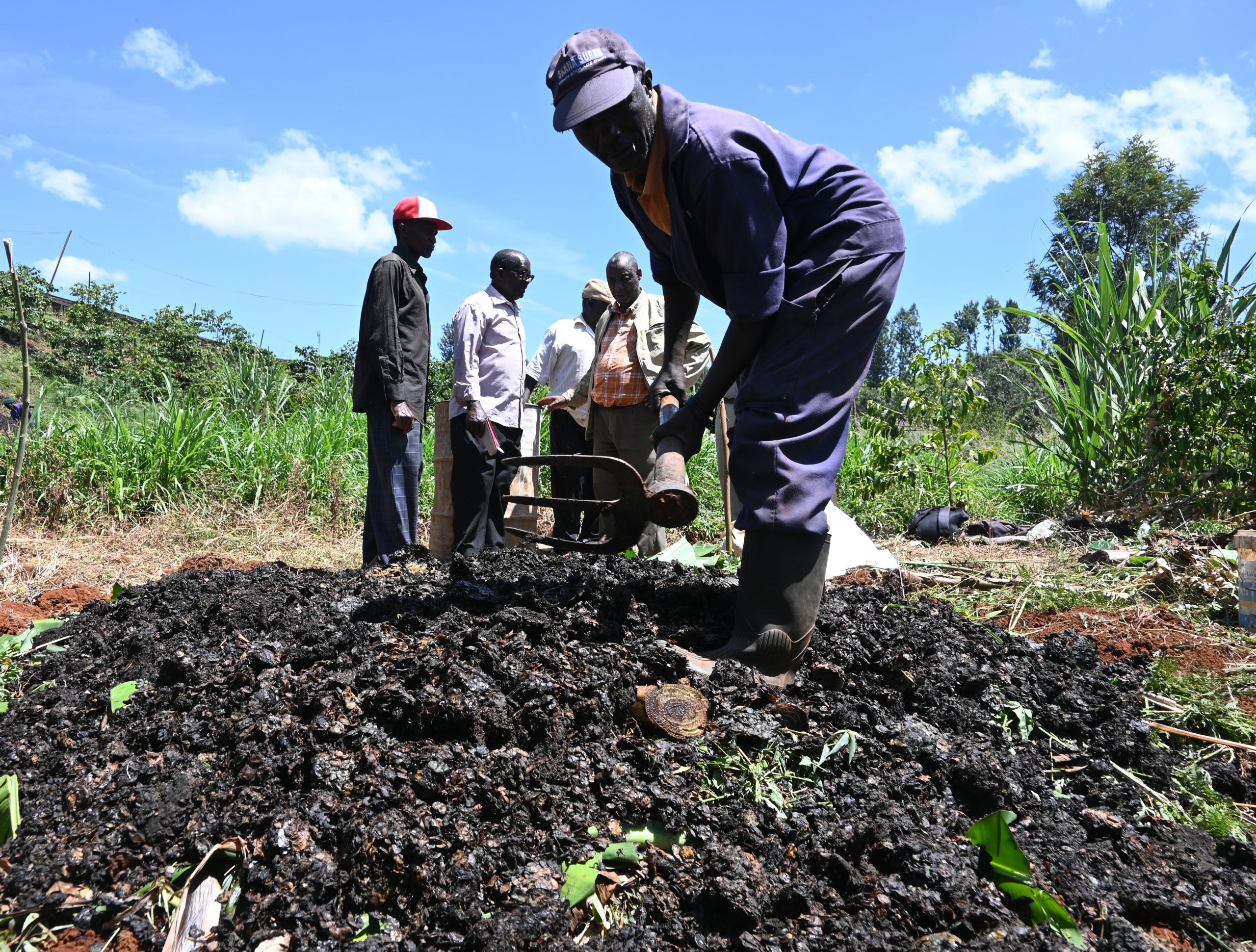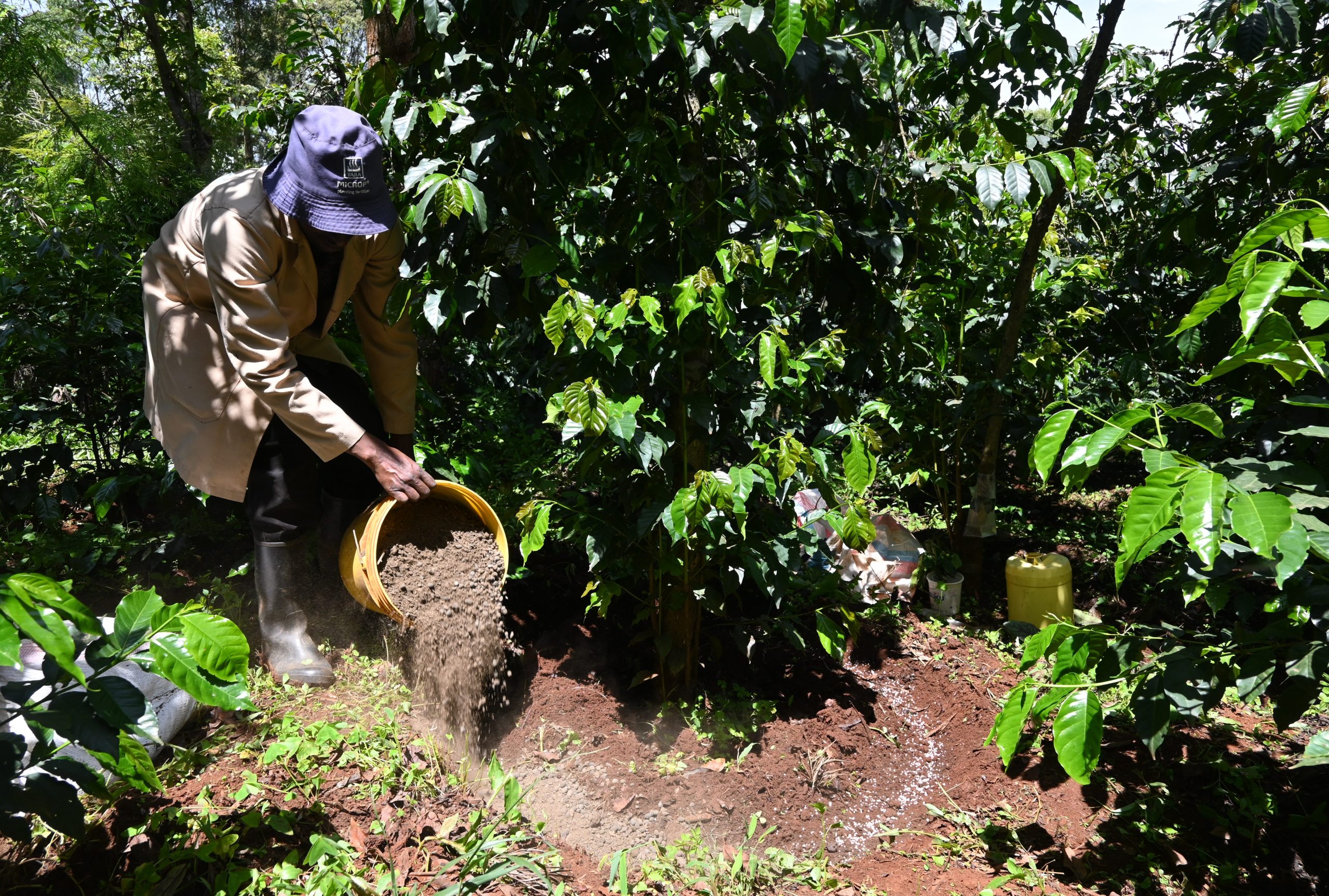In the heart of Kenya's coffee-producing regions, the ARABIKA Project is making waves by addressing the pressing issue of waste generated during coffee processing.
Coffee processing, while essential for producing the beverage enjoyed by millions worldwide, generates a significant amount of waste, with coffee pulp alone accounting for approximately 40% of the fresh fruit. Historically, in many parts of Kenya, this byproduct has been discarded, leading to environmental challenges. In other cases, the coffee pulp is repurposed as fertilizer, but this practice also poses environmental risks due to the decomposition of the pulp.
Transforming waste into opportunity for 21 cooperatives
The ARABIKA project takes a proactive approach to tackle this issue by introducing innovative waste management techniques. Central to the project's strategy is the conversion of coffee pulp into organic compost through a process that involves mixing it with other green vegetation. This composting method not only effectively manages the coffee waste but also yields high-quality organic manure that can be utilized to nourish the soil and enhance agricultural productivity.
By transforming coffee pulp into organic compost, the project not only mitigates environmental problems associated with waste accumulation but also contributes to sustainable agriculture practices. The organic compost serves as a valuable resource for small-scale coffee farmers, offering a cost-effective and environmentally friendly alternative to chemical fertilizers.
Empowering farmers for sustainable practices
Additionally, to further contribute to climate change actions, the project trains farmers on climate smart agricultural* production. This entails agroforestry, water management, soil conservation including cover cropping, contour farming, and organic soil amendments to improve soil health and prevent erosion as well as supply chain transparency that allows for traceability and certification to ensure ethical and sustainable practices throughout the coffee value chain.
Moreover, the project plans to distribute seven pilot eco pulper machines to selected cooperatives. These machines are efficient in pulp removal and minimize water usage, reducing energy consumption, and enhancing the overall quality of coffee production.
The ripple effects of these actions are the positive socio-economic growth for the coffee-producing communities. By providing training and resources for composting, the project empowers farmers with new skills and knowledge, enabling them to improve their agricultural practices and increase their yields sustainably. Furthermore, the production of organic compost creates opportunities for income generation and entrepreneurship within local communities, contributing to economic resilience and livelihood improvement.
ARABIKA project's approach to coffee value chain efficiency not only addresses environmental concerns but also promotes sustainable agriculture and community development.
Education is the foundation on which to build any climate change mitigation or adaptation intervention. Education understood as a way of accompanying the person to discover his or her irreducible value and dignity, also plays a fundamental role in promoting behavioural change and raising awareness of the impact that simple daily gestures can have in protecting the environment and nature, ecological transition, energy efficiency, knowledge of sustainable agriculture techniques, the protection of forests, the reduction and treatment of waste and the prevention of risks related to extreme weather events.
Romana Koech, AVSI Country Represenative in Kenya
Arabika project: support for 30 thousand coffee producers in Kenya
ARABIKA is a project born out of the collaboration of the Governments of Kenya and Italy. It is funded by The Italian Agency for Development Cooperation (AICS) and implemented by CEFA as the lead partner, AVSI and E4Impact Foundation. The project targets 30,000 farmers within 21 cooperatives in 7 counties of Kenya including, Bungoma, Nyeri, Machakos, Murang’a, Kiambu, Meru and Embu. Its interventions target the whole coffee supply chain by focusing on the organizational and management aspects of the producer cooperatives, a marketing component with a specific aim of improving the quality of the final product. The aim is to improve access to more lucrative markets, both locally and globally.

International Zero Waste Day
Proclaimed by the United Nations General Assembly on 14 December 2022, the International Day of Zero Waste or Zero Waste Day to promote sustainable consumption and production models, support society's transition towards circularity and increase awareness of how zero waste initiatives contribute to the advancement of the 2030 Agenda for Sustainable Development.
The waste sector, the UN reminds us, contributes significantly to the triple planetary crisis of climate change, the loss of biodiversity and nature and pollution.
*What is Climate Smart Agriculture? Climate-smart agriculture (CSA) is an approach promoted by FAO which focuses on three essential objectives: sustainably increasing agricultural productivity and related earnings; adapt and build resilience to climate change; reduce or remove, where possible, greenhouse gas emissions.




